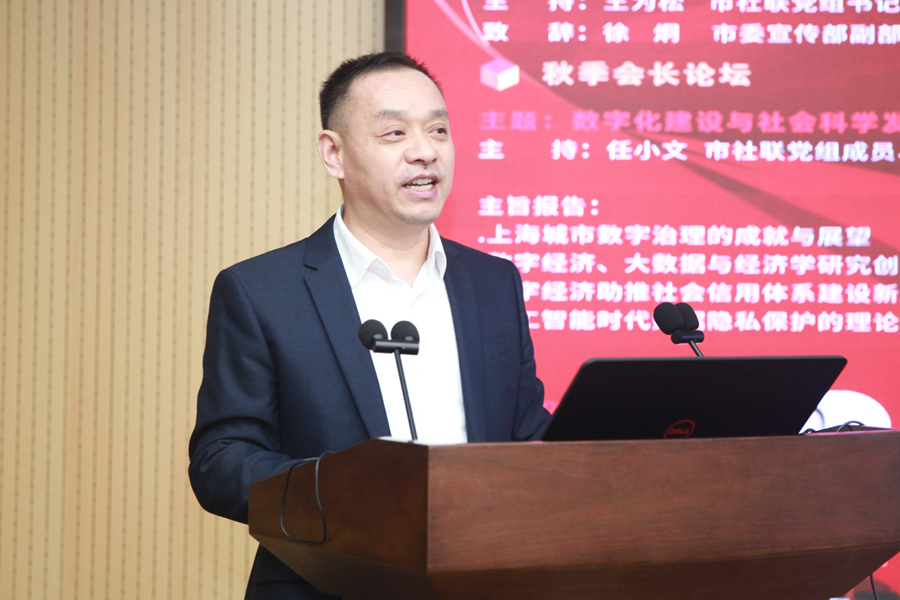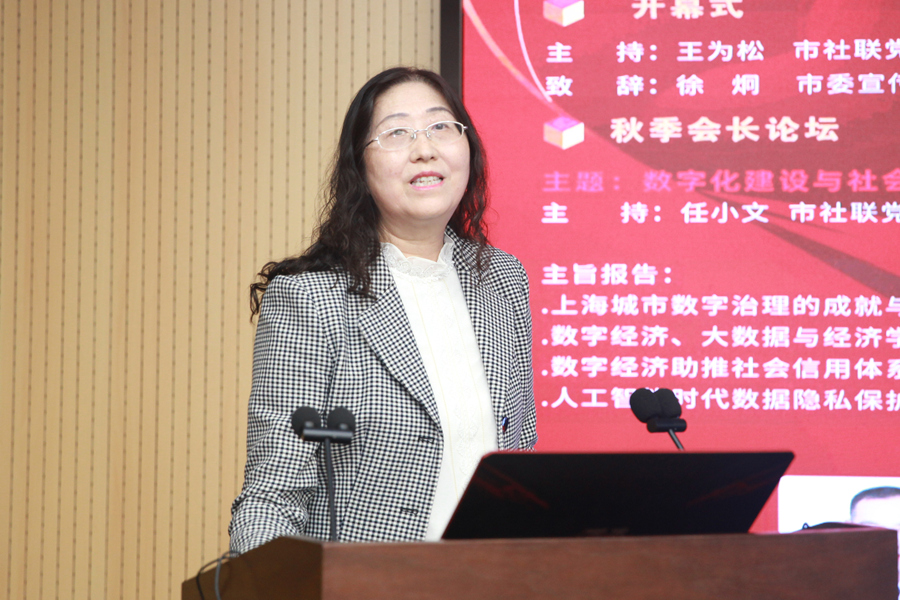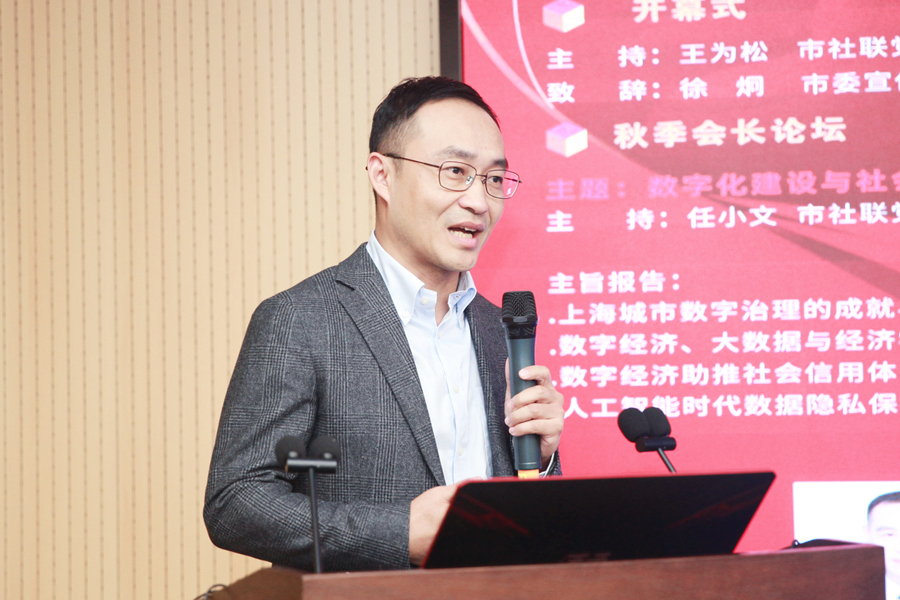SSSA holds the opening ceremony of 15th Academic Activities Month and Presidents' Forum Autumn
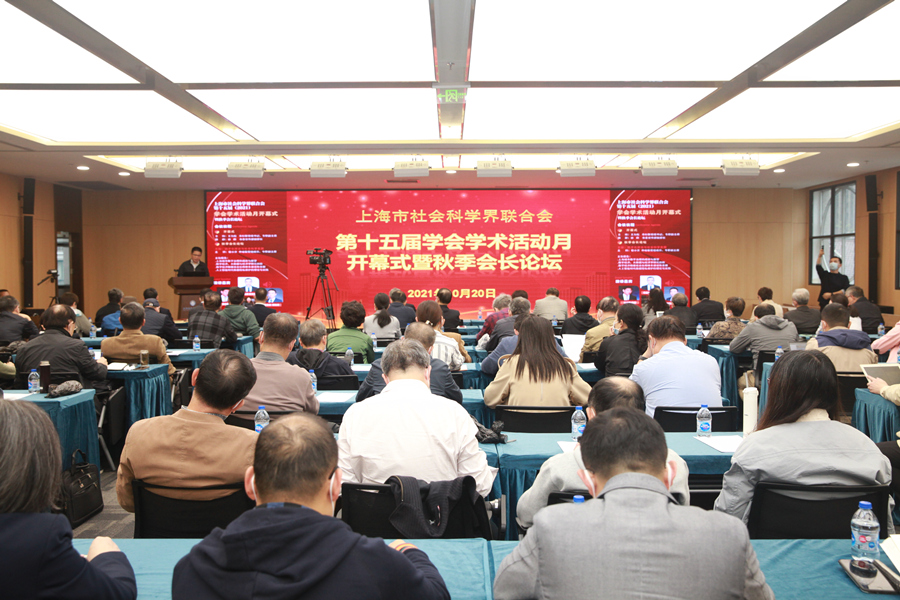
October 20, 2021, Shanghai Federation of Social Science Associations (SSSA) held the opening ceremony of its 15th Academic Activities Month, and hosted its Presidents' Forum Autumn addressing “Digital Building and Social Science Development.” Keynote speakers were specially-invited experts and presidents (chairpersons) of social science associations based in Shanghai, including Shen Jinbo, Deputy Director of Shanghai Municipal Government General Duty Office; Prof. Yuan Zhigang from Fudan University, Vice Chairman of Shanghai Institute of Macroeconomic; Hong Mei, Chairman of the Credit Research Association of Shanghai and Professor of Shanghai Lixin University of Accounting and Finance; and Hui Zhibin, Vice Chairman of Shanghai Research Institute of Artificial Intelligence and Social Development and Researcher of Shanghai Academy of Social Sciences.
Shen Jinbo believed that the safe, orderly, efficient, and convenient life in Shanghai was very much reliant on the digital capacity of the city. For instance, Shanghai is the first in the country to launch "one network for government services" and "one network for city operations". A city’s digitalization is not for digitalization’s own sake: it is a mere means, not the end. In other words, the digital transformation of cities should always put people first and stress practical value. Effectivity and efficiency are the key words.
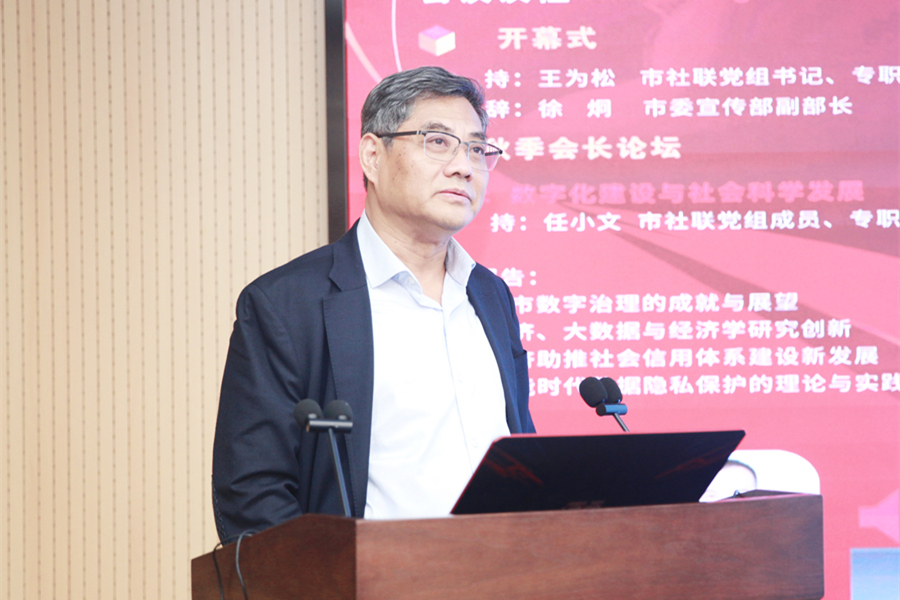
Yuan Zhigang elaborated on the digital economy and its possible impact on the labor market and social governance. Yuan also emphasized the importance of related legislation, digital economy, big data, and innovation in economics. As the digital economy has become a very important driver of growth in the new era and is crucial to China's new growth pattern, it is increasingly utilized in all production, exchange, distribution, and consumption processes, restructuring the value of goods, boosting the efficiency of the real economy, and optimizing the ecology of emerging industries. However, at the same time, we should seriously consider the legal and ethical issues brought by the development of the digital economy, and properly handle the relationship between data privacy protection and scenario applications.
Hong Mei pointed out that, in the context of the market economy, the building of a cultural environment friendly to business and encouraging business integrity is impossible without the continuous improvement of the credit system. As the credit system building and the digital economy development are combined, big data-based credit rating is developing rapidly. Based on the data accumulated by Internet agencies, big data credit links different interfaces at demand and rapidly generate data conclusions, enabling breakthroughs in the building of China's credit system in terms of classification, architecture, and information sharing, empowering "big data + credit" and other innovative applications, and has made a great impact on the economy, life, and governance.
Hui Zhibin pointed to current trends in global AI development that are progressing from the phase of "scientific exploration" to that of "industrial application ". The advent of a data-driven economy means that everything can be digitized, and personal data becomes a key resource to support economic activities and social governance. At present, the issue of data privacy arising from the collection, utilization, and circulation of personal information has become a critical one. He said that AI development must be restricted ethically and legally. Wherever is innovation involved, the awareness of user privacy protection should be raised.
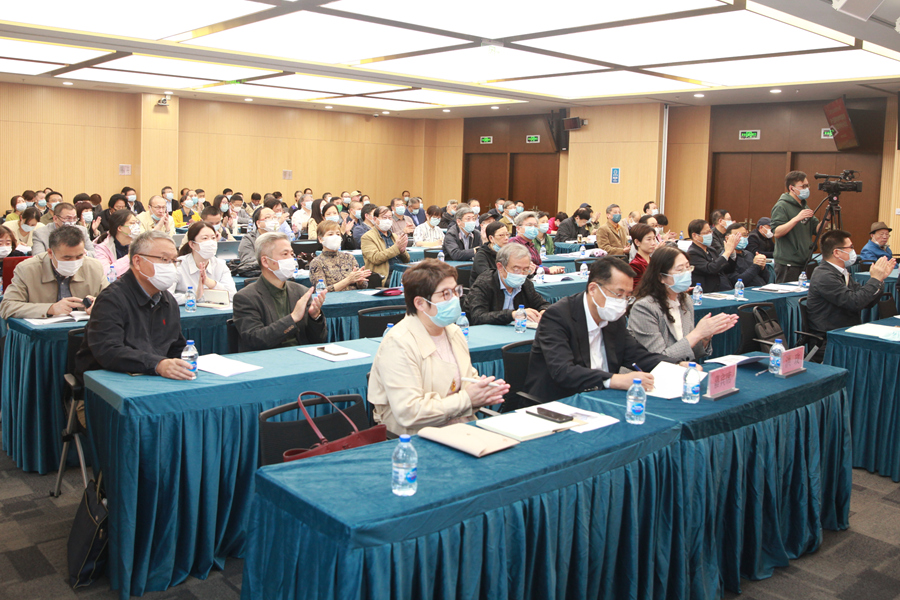
The Academic Activities Month project of SSSA was iniated in 2007. Over the past 15 years, the project has brought nearly 2,000 top-level academic events. As such, it has become a key academic exchange platform of SSSA and also a major annual cultural event of the social science community in Shanghai.
